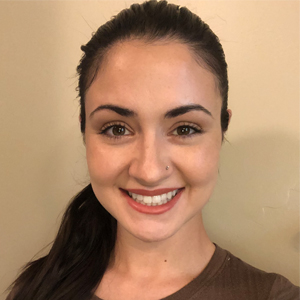提升你的職場競爭力,從商業英文寫作開始!
在現代商業環境中,寫作能力不再只是基本技能,而是決定你能否脫穎而出的關鍵!「中級商用寫作班」 幫助你掌握專業、精準且有說服力的寫作技巧,無論是電子郵件、提案報告還是商業簡報,都能輕鬆駕馭。
讓你的商業英文寫作更專業,抓住客戶的目光!
寫一封能吸引客戶的 Email?撰寫清楚易懂的商業報告?這些都不是難事!
「中級商用寫作班」 讓你掌握 商業寫作的核心技巧,不論是行銷文案、商業合約、內部報告,都能條理清楚、簡潔有力,讓你的文字真正產生影響力。
閱讀更多:熟練商業寫作,成為職場英語達人!
別讓你的文字拖垮專業度,提升商業寫作力就趁現在!
在職場上,一封 不夠專業的信件,可能讓你錯失機會;一份 缺乏邏輯的報告,可能讓你的提案被否決。
「中級商用寫作班」 教你如何撰寫精準、專業的商業文件,確保你的想法能清楚傳達,說服力倍增!
掌握職場關鍵技能,讓你的文字更具影響力!
想像一下,當你的老闆、同事或客戶看到你的 Email 或報告時,能夠 迅速理解你的重點,並產生深刻印象,這將為你的職場發展帶來多少優勢?
「中級商用寫作班」 讓你學會用 簡潔、專業、具說服力的文字,提升工作效率與影響力!
學習內容包括:
• 如何避免冗長、模糊的表達,提升溝通效率
•讓商業書信更具專業度,減少誤解與來回溝通時間
•建立邏輯清楚的報告,讓你的提案更具說服力
•立即加入,讓你的寫作成為職場的競爭優勢!
【中級商用英文寫作班】課程內容
Class | Teaching Content |
1 | Style: writing in your natural voice 1.1 Style and Turner’s question 1.2 Sentence length 1.3 Sentence structures 1.4 Choice of words 1.5 Appropriateness ** Writing Practice**
|
2 | Style: writing in your natural voice 1.6 Use of capitals 1.7 First and second person pronouns 1.8 Active and passive 1.9 Putting it all together 1.10 A complete guide to style ** Writing Practice**
|
3 | Brands 1.Talk about your favorite brands 2. Discuss two authentic product promotions 3. Reading: Outsourcing production – Financial times |
4 | Good usage: the split infinitive and all that 2.1 So who decides? 2.2 Is it wrong to split an infinitive? 2.3 Can you start a sentence with and, but, because or if? 2.4 Can you end a sentence with a preposition? ** Writing Practice**
|
5 | Good usage: the split infinitive and all that 2.5 Can you use can in the sense of “have permission”? 2.6 Can you use hopefully in the sense of “it is to be hoped that”? 2.7 Is it all right to use the word get or got? 2.8 Is it true that, after if, then is redundant? 2.9 After the word different, do you use from, to or than? ** Writing Practice**
|
6 | Travel 1.Talk about your travel experience 2.Reading: Air rage – Guardian |
7 | Good usage: the split infinitive and all that 2.10 Can you use I have gotten or must it be I have got? 2.11 What is the etymological fallacy? 2.12 What is gender-biased language and how do you avoid 2.13 When do you write numbers words, and when as digits? ** Writing Practice**
|
8 | Good usage: the split infinitive and all that 2.14 What are the right and the wrong ways of using myself and other –self forms? 2.15 When do you use said, and when said that? 2.16 When do you use which and when do you use that? 2.17 When do you use who, whom and whose? 2.18 When do you use less, and when fewer? ** Writing Practice**
|
9 | Organization 1.Rank status symbols in order of importance 2.Reading: Flexibility in the workplace – Fast Company |
10 | Good usage: the split infinitive and all that 2.19 When do you use if, and when whether? 2.20 When do you use shall, and when will? 2.21 How do you use acronyms (combinations formed from initial letters)? 2.22 None of them is or none of them are—and all the rest ** Writing Practice**
|
11 | Punctuation and the use of capitals 3.1 Why is punctuation worth a writer’s serious attention? 3.2 The three end stops: (.) (?) (!) 3.3 Commas (,) 3.4 Semicolons (;) 3.5 Colons (:) and dashes (—) ** Writing Practice**
|
12 | Change 1.Discuss attitudes to change in general and at work 2.Rank stressful situations 3.reading: Change in retailing – Financial Times |
13 | Punctuation and the use of capitals 3.6 Round brackets ( ) 3.7 Square brackets [ ] 3.8 Apostrophes (‘) 3.9 Ellipses (…) 3.10 Slashes (/) 3.11 Hyphens (-) and en dashes (–) ** Writing Practice**
|
14 | Punctuation and the use of capitals 3.12 Italics or underlining 3.13 Quotation marks (‘ ‘ or “ “) 3.14 CAPITAL (or UPPER-CASE) LETTERS and small (or lower-case) letters
Words, words, words 4.1 A list of the most often misspelt words 4.2 Words that are often confused ** Writing Practice**
|
15 | Final Exam |
【中級商用英文寫作班】介紹

1.談談你最喜歡的品牌
2. 討論兩種正宗產品促銷
3. 閱讀:外包生產-金融時報
4 好的用法:分割不定式等等
5.那麼由誰決定呢?
6.不定式的拆分是否錯誤?
7.你能用 and、but、because 或 if 來開頭嗎?
8.你能用介係詞結束一個句子嗎?
中級商用英文寫作班|老師推薦


Andria James
籍:美國 / 年資:3年 / 學歷:新墨西哥州立大學 幼兒教育學士 / 經驗:專業幼兒教育老師 / 特色:親切,有耐心照顧每位學生:專長 / 加強語彙能力、文法能力、速讀速解力、理解能力

